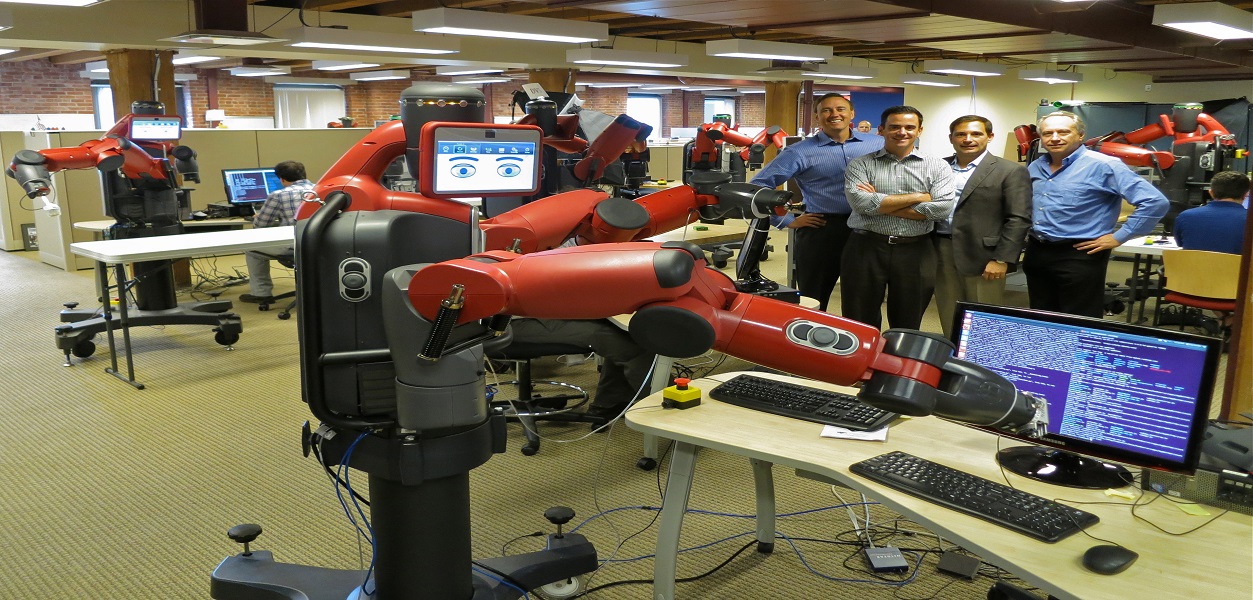Technology and Wages: A Conversation with James Bessen
James Bessen is an economist and lecturer at Boston University Law School. He is the author of Learning by Doing: The Real Connection between Innovation, Wages, and Wealth. In a recent conversation, we had the chance to talk about the effect technology has on wages and job availability.
Yale University Press: In your book Learning By Doing, you point out that technology has brought great improvements in speed, efficiency, and productivity to our lives but has not brought advances in one key area: our paychecks. Why is this the case?
James Bessen: Over the last two centuries, technology was responsible for more than a ten-fold increase in pay, mainly because ordinary workers acquired valuable skills related to new technology. But during the last three decades—as new information technologies have transformed many industries at once—the median wage has hardly budged, fueling widespread concern about rising economic inequality. A key problem is that cutting edge knowledge is difficult for many people to acquire. Technology and business models are changing too rapidly. Schools often cannot keep up and skills learned on the job often cannot be certified, making it difficult for labor markets to compensate workers for new skills. Until new training institutions and robust labor markets emerge, many workers will not share in the benefits brought by greater productivity.
YUP: Historically, we’ve been here before, correct? That is to say, other eras—such as The Industrial Revolution—brought rapid change in labor markets and economies. What might we learn from the lessons of history that could inform our current crossroads with technology and economics? What is different, if anything, about our current era?
JB: Yes, wages were stagnant for decades at the beginning of the Industrial Revolution while profits and productivity soared, just like today. Workers in the textile mills had to acquire new highly specialized skills in order to use the novel machines efficiently. They learned these skills on the job, but until the technology and business practices were standardized, there was little demand for their skills at other employers. In the US, a robust market for textile workers only emerged after the Civil War. Then pay grew rapidly. Today, the obstacles to learning are different, but history reminds us that when new knowledge is widely shared, so are the benefits of technology. Yet this may take time.
YUP: You cite technology experts who see an increasing trend of technology-provided services supplanting human providers. Some examples include voicemail systems replacing operators, bank ATMs providing many services for which tellers had previously been needed, etc. What has this trend meant so far for our economy, relative to opportunities, growth, and wages? What would an increase in this trend mean going forward?
JB: Some people assume that computers are eliminating jobs because they perform tasks that humans used to do. But the real effect of computers is not so much to eliminate jobs overall, but to change the skills needed to perform them. ATMs did not eliminate bank tellers, they just changed tellers from cash handlers to marketing specialists; automated phone systems meant changing from switchboard operators to receptionists. But the skills needed for the emerging jobs are often difficult to develop and without them, earnings suffer. Thus the main impact of computers has been on wages, not on the number of jobs. That might change in the future, but right now policymakers should focus on helping people learn new skills.
YUP: You assert that technology is not merely a job-destroying force but one that also creates new jobs—however, these are jobs that require fresh skills. You also point out that the sort of technical knowledge that potential employees need for market value cannot be taught in classrooms and must be “learned by doing.” How then can we solve the problem then of creating workers who are ready to benefit, rather than be cowed by, advances in technology?
JB: Much of the policy focus around skills has been directed at increasing schooling, especially increasing the number of four-year college graduates. While college graduates may be better able to learn new technologies, they, too, must learn much through experience. The key for both college grads and other workers is to provide them with the strongest incentives to learn on the job. Technologies and business models need to be standardized across multiple employers, experienced-based skills need to be certified, and employees must be free to change jobs. In this way, a robust labor market can offer employees the prospect of an extended career, possibly at multiple employers, where they benefit richly from their new skills.
YUP: One of the key points that you stress is that the skills needed to keep up are learned on the job. How might employers come to understand and be incentivized to create environments where on-the-job training is encouraged?
JB: Employers are aware of the problem. Over a third of them report difficulty finding new employees who have needed skills, a so-called “skills gap.” What many employers don’t understand, however, is what they can do to help develop new skills. In leading industries, firms are providing enhanced job training, often in work/study programs with local community colleges; they are establishing standards and certification programs; and industry associations are setting up centralized job exchanges. Employers in emerging fields also need to recognize that they can benefit when employees “job hop” from one firm to another, as is widely practiced in Silicon Valley.
YUP: If you could offer advice to policy makers, what would be your top suggestions for them to prepare us for technology to enrich us and also level the playing field?
JB: Top priorities include support for technical education as well as policies to encourage employee mobility and the creation of startup firms in emerging fields. Such policies include, for instance, putting limits on the enforcement of employment agreements that bar employees from taking new jobs within their employer’s industry and paring back excessive occupational licensing requirements. Even government procurement programs can play a vital role by encouraging widespread use of common standards as was done, for example, with the Internet.
YUP: How well has policy been working in these areas?
JB: Unfortunately, policy changes over the last couple decades have been mostly in the wrong direction. Educational funds have been shifted away from vocational education to support four year colleges; the use of restrictive employment agreements has increased dramatically and departing employees are getting sued much more often; occupational licensing requirements have expanded to cover almost one third of the workforce; abusive patent litigation has deterred venture capital funding for start-ups and reduced small firm R&D; and military procurement has increasingly favored large defense contractors, limiting the knowledge-spreading roles of university researchers and start-up firms. It seems that influential lobbies have tilted policy in the wrong direct. Yet these changes have real world effects. Job training is down, employee mobility is down, and the formation of start-up firms is down.
Further Reading:



























